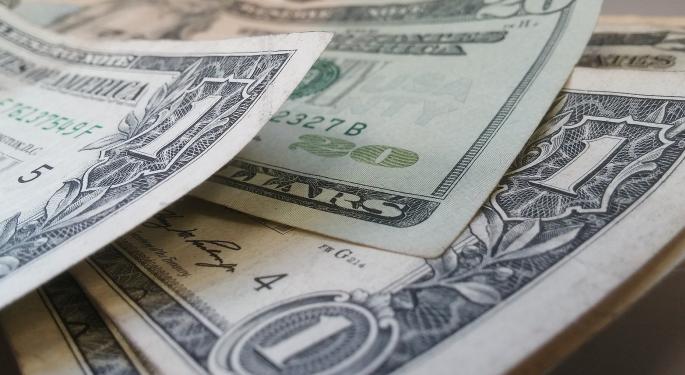Want To Double Your Money In 7 Years? Jim Cramer Explains How
It takes just seven years for an investor to double their money — thanks to the magic of compounded interest and a little patience. CNBC's Jim Cramer made this topic a focal point of his daily "Mad Money" segment on Friday.
Cramer's segment was directed more toward novice investors and workers who don't have high-paying jobs. He implored them to begin investing as early as possible in their life to take advantage of compounded interest, that is, interest earned on interest.
Suppose an investor earns a 3 percent return in year one. In year two, the investor earns a return on not only the amount invested in the prior year, but the interest they have already received.
"The truth is, if you want to become really wealthy in this country, unless you are born with a silver spoon in your mouth, that means planning your financial strategy for an entire lifetime," Cramer said.
Cramer said that by saving a "decent chunk" of each paycheck will help millions of people become "financial independent," although, "not filthy rich."
Cramer pointed out that the S&P 500, dating back to 1928, averaged an annual return through the end of 2014 of around 10 percent. He added that stocks are simply "the best game in town" and "are really the only game in town if your goal is to grow your wealth."
Compounding Return Works Its Magic
Cramer continued that an annualized return of 10 percent needs to be fully understood over a very long-term scenario. The first milestone occurs after roughly seven years when a compounded annualized return of 10 percent effectively doubles the initial investment.
Cramer did acknowledge that for many investors, waiting seven years to double an investment "seems like eternity." On the other hand, the magic of compounding interest is also "incredible."
"All you have to do after you initially save that money is let it sit on the sidelines, ideally in a 401(k) plan or an IRA so that you don't' have to pay capital gains or dividend taxes on your gains," Cramer concluded.
Do you have ideas for articles/interviews you'd like to see more of on Benzinga? Please email feedback@benzinga.com with your best article ideas. One person will be randomly selected to win a $20 Amazon gift card!
© 2025 Benzinga.com. Benzinga does not provide investment advice. All rights reserved.
Posted-In: CNBC Compounded Interest Investing Investing StrategyAnalyst Color Media Personal Finance General Best of Benzinga



